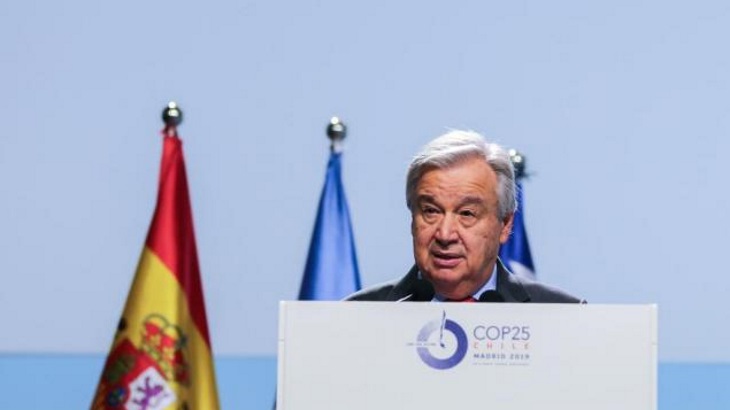Madrid talks leave carbon pricing to COP26
16 December 2019
The UN climate talks in Madrid finally ended yesterday with agreement to postpone a decision on the sixth article of the Paris climate accord. COP25 had been supposed to work out rules for a new global carbon market and create a system that would allow countries to pay each other for projects that reduce emissions. That task will now have to be taken up at COP26 in November 2020.
 UN Secretary-General António Guterres said he was disappointed with the results of COP25 (Image: UNFCCC)
UN Secretary-General António Guterres said he was disappointed with the results of COP25 (Image: UNFCCC)
According to the Financial Times, the talks were "haunted by the legacy" of old carbon credits created under the 1997 Kyoto protocol that had been conceived as a way for rich countries to pay poorer nations for emissions reduction projects. These are "nearly worthless" and their use has been "widely discredited", the newspaper said. The countries that still hold the old credits - mainly China, India and Brazil - have been fighting to have the right to carry them over into the new system meant to have been agreed in Madrid.
"After negotiators failed a second year in a row to agree on guidance for markets, it’s time to move on," Nat Keohane, senior vice-president at Environmental Defense Fund and an observer to the talks, told the newspaper. Keohane called on countries to set up their own rules given the lack of any UN guidance.
Delegates from the almost 200 nations at COP25 endorsed a declaration to help poor countries suffering the effects of climate change but didn't allocate any new funds to do so. The final agreement highlighted the "urgent need" to cut greenhouse gases in line with the goals of the 2015 Paris agreement. And many delegates resisted calls to enhance pledges to cut greenhouse gases next year.
"The international community lost an important opportunity to show increased ambition on mitigation, adaptation and finance to tackle the climate crisis," UN Secretary-General António Guterres said. "But we must not give up, and I will not give up. I am more determined than ever to work for 2020 to be the year in which all countries commit to do what science tells us is necessary to reach carbon neutrality in 2050 and a no more than 1.5 degree temperature rise."
The UK, which in June became the first major economy in the world to pass laws to end its contribution to global warming by 2050, will host COP26 - in Glasgow, Scotland. Newly elected British Prime Minister Boris Johnson said today he plans to create a new government department to tackle climate change.
Researched and written by World Nuclear News